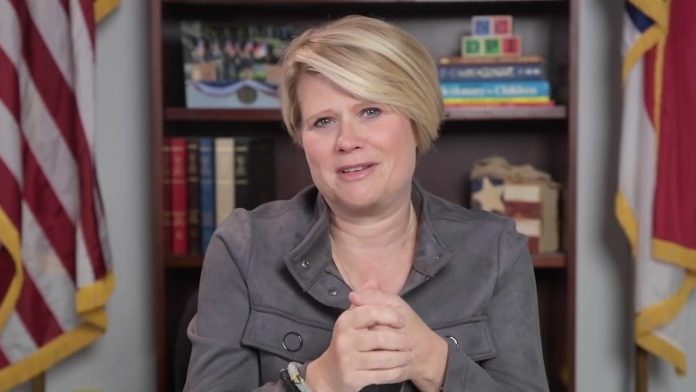An average of 20 North Carolina teachers a year are losing their licenses or having them suspended due to sexual misconduct with students, according to State Superintendent Catherine Truitt.
Truitt presented the sexual misconduct data on Tuesday to make the case for tougher penalties for sexual offenses with students. The state House K-12 Education Committee responded by backing the “Protect Our Students Act,” which increases the penalties for sex offenses with students as well as on school leaders who fail to report the misconduct.
“This legislation before us today is to address a small minority of adults and proactively put protections in place to ensure that we are prioritizing every single student,” Truitt told lawmakers. “It is about establishing protections and guardrails so that North Carolina students feel safe, comfortable and joy when they walk into their school building or classroom each day.”
House Bill 142 now goes to the Judiciary 2 Committee, which could act on the bill Wednesday.
‘GROOMING’ OF STUDENTS
One of Truitt’s duties is to sign license revocations for teachers.
From January 2016 to October 2022, Truitt said there have been 124 North Carolina teacher licenses that have been suspended, revoked or voluntarily surrendered for sexual misconduct with students. There are more than 95,000 teachers in the state.
In addition, Truitt said an Internet search of that same time period found 20 more cases of non-licensed North Carolina school employees who’ve been convicted of sexual misconduct with students.
There also, Truitt said, are news reports showing more than 50 school employees who’ve now been charged or are actively being investigated for sexual misconduct against students.
She said many of these offenses are the result of sexual grooming. She said these school employees are often targeting vulnerable students who feel flattered that an adult is paying them so much attention.
“A teacher texts a student to offer support, and before you know it the talk turns sexual,” Truitt said. “The challenge is that grooming has been normalized through platforms such as social media, text messages or private conversations in the classroom, the hall or the office.”
The legislation would require school districts and charter schools to show middle school and high school students a video produced by the Center for Safer Schools about sexual abuse. She said the video will address topics such as grooming.
Truitt cited a 2004 U.S Department of Education report that found as many as one in 10 students may be subjected to some form of it during their K-12 careers.
‘ONE VIOLATION IS TOO MANY’
Under House Bill 142, engaging in sexual activity with a student or taking indecent liberties with a student would be elevated from a Class I felony to a Class G felony.
The legislation would also extend the offense time to within six months after a student is no longer in school. Truitt said many of the cases she’s reviewed in license revocation decisions involved cases that began after a student has graduated.
“Thirteen years ago when I decided to run for this very humbling office in the General Assembly, I never ever, ever, ever expected that I’d be dealing with such bills as we’re dealing with today to make sure that we protect our kids against unwanted abuse for lack of a better word in our school systems,” said Rep. John Torbett, a Gaston County Republican and co-chair of the Education Committee.
The legislation also puts more of an onus on school leaders to report licensed employees such as teachers who engage in misconduct. The state can revoke the licenses of teachers who engage in misconduct.
The bill says superintendents, assistant superintendents, associate superintendents, personnel administrators or principals must report any teacher who they know or have reason to believe has engaged in misconduct resulting in dismissal, disciplinary action or resignation.
The school leaders would have to report the misconduct to the State Board of Education within five days of dismissal, determination of disciplinary action or acceptance of resignation of the employee. Failure to report misconduct would be a Class I felony.
Despite the numbers, Truitt said she wasn’t besmirching teachers as a whole.
“The overwhelming majority of teachers will never come close to violating the rights of a student, and I don’t want anyone in this room or listening at home to interpret this as a blanket statement about educators in our state, because doing so would be unfair and inaccurate,” Truitt said. “But I firmly believe that one violation is too many and I believe that we can do more to ensure our schools remain safe for students to learn and grow.”













